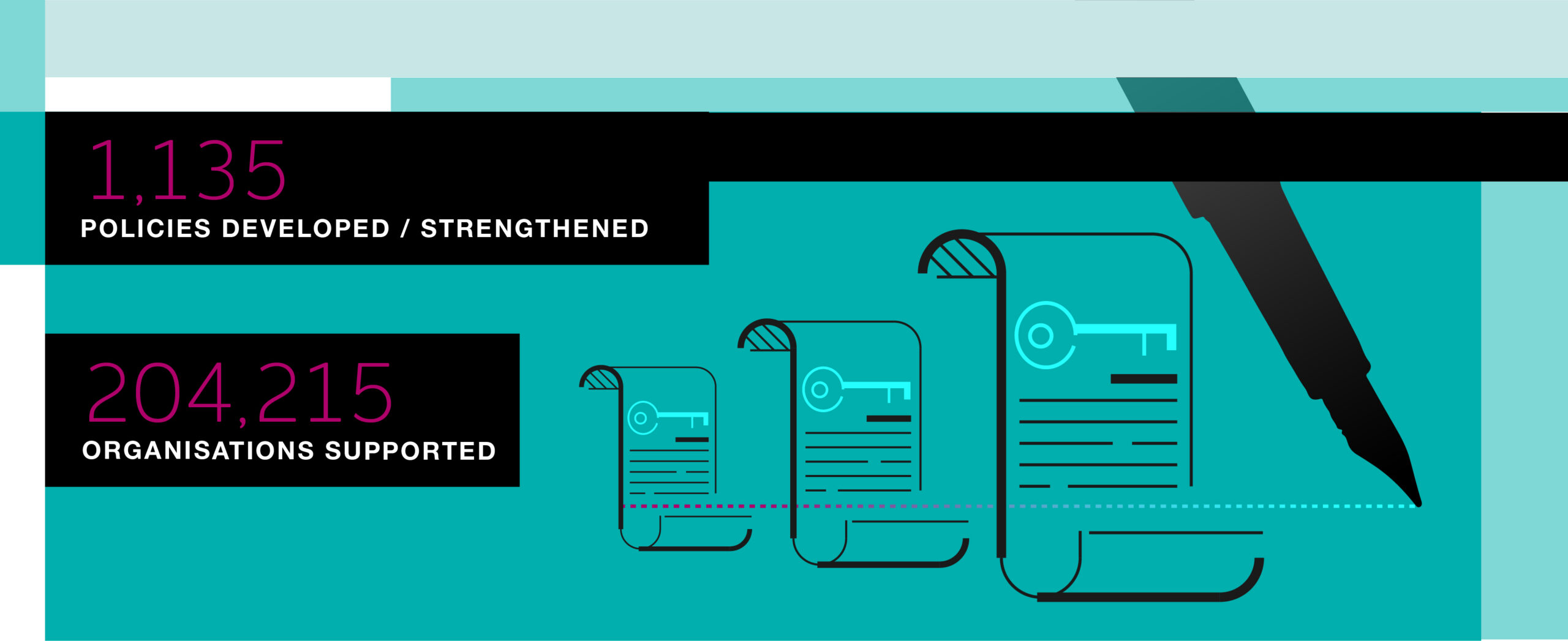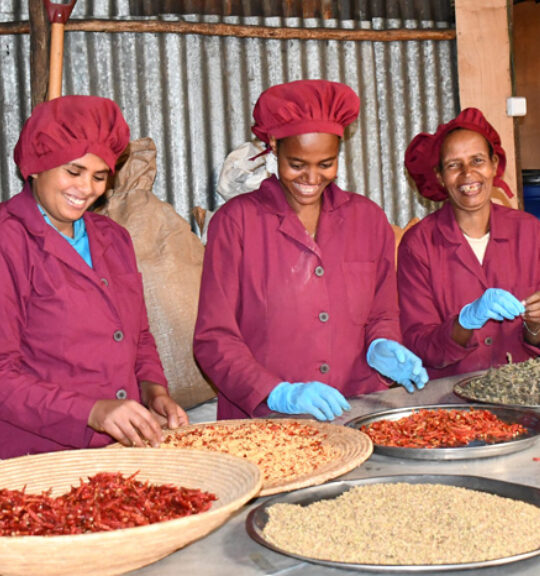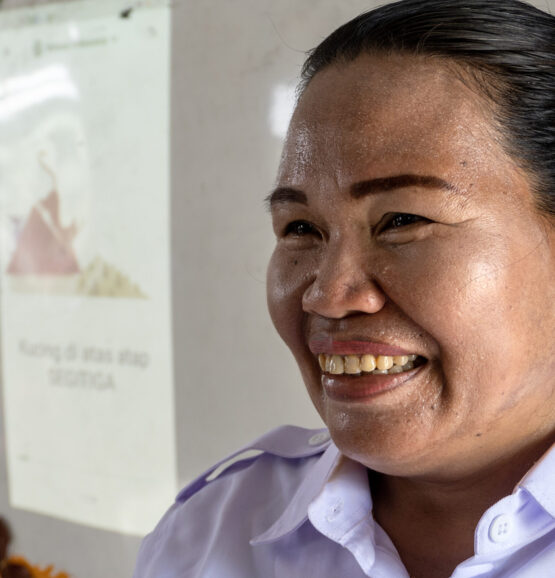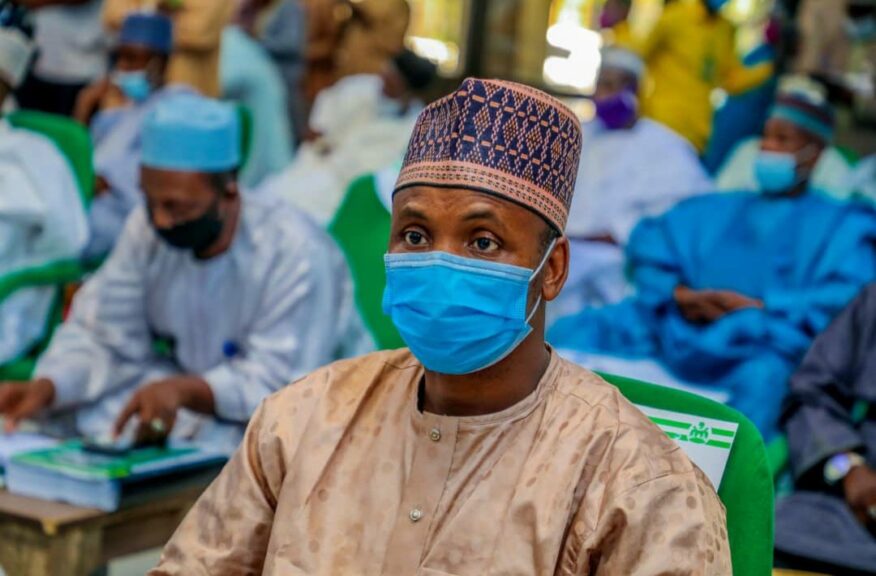Our Impact


Sustainable development needs policies and institutions in place to support it. Whether enacting government legislation or supporting changes to institutional strategies, standards or regulations, our policy work provides clear direction for others to continue creating impact long after our contracts are complete.
It’s not always simple. Real, enduring change requires deep local knowledge and translating policy work into action takes time, patience, and respect. When it’s done right, a single policy developed or strengthened can stand to impact millions of lives.
This year we saw a near doubling of the number of policies developed or strengthened across our projects from last year. From changing formal rules, to helping enact new policies, and updating existing laws and regulations, our teams are often working behind the scenes, partnering with governments and institutions to enact sustainable changes that both impact and improve millions of lives.
Ultimately, policies are essential for ensuring that our work has a lasting impact, providing a roadmap for the effective use of resources and the enabling environment to address the most urgent needs of people and planet.
Policies for Children
In Indonesia, policy, and the influence it can have on education, is at the heart of everything that INOVASI (Innovation for Indonesia’s School Children program) does. The partnership program between the governments of Australia and Indonesia identifies and supports changes in educational practices, systems, and policies that can boost student scores and learning in literacy, numeracy, and 21st-century skills.
Differentiated learning is at the heart of Indonesia’s new national curriculum, which INOVASI is helping to implement. Children’s learning needs to be adjusted to the initial level of their ability and is determined through initial diagnostic assessment. The learning material and pace are tailored to provide an appropriate level of challenge: not too easy (repeating what students already know), while not excessively beyond the students’ initial abilities. The principle is simple, yet it demands thoughtful consideration and creativity for successful application in the classroom.
For teacher Paulina Melkisidik in rural Malinau, adopting different methods of teaching based on student assessments has already shown positive improvements in her classroom’s learning. Evidence from INVOASI’s research has been key to understanding student learning outcomes across the country. That same research indicated that learning recovery doubled for children whose teachers used an adaptive and child-centred curriculum as it emphasised the foundational skills of literacy, numeracy, and character skills which are vital for children’s progression in learning.
It’s curricula that Paulina is putting to work in her classroom as she adapts to her individual student’s needs, introducing cozy book corners, and teaching reading through interactive slideshows, curriculum that’s proving to work for not just her students, but students across Indonesia.
Ensuring Healthcare
Through our FCDO-funded LAFIYA program, which operates across 5 states in Nigeria, we’re supporting the development and implementation of policies to improve health outcomes for the most vulnerable populations.
In Kano State, Lafiya is working towards the adoption of Universal Health Coverage (UHC), so that all people have access to the full range of quality health services, when and where they need them. This requires robust, predictable, and sustainable public sector financing, which is why, in 2017, the Kano State Government established the Kano State Contributory Healthcare Scheme (KSCHMA), with the goal to finance UHC for all Kano residents.
However, in the four years since its establishment, KSCHMA only enrolled around 3% of the state’s total population, leaving millions vulnerable without insurance coverage. LAFIYA, identifying the problem, stepped in to initiate a review of the law that first established the KSCHMA. Based on their findings, our team proposed that an additional 1% of the State’s Consolidated Revenue Fund be contributed to a public equity fund for UHC.
So far, since the Kano Governor formalised the new law, an estimated US$1.4 million has been released through this UHC public equity fund, giving millions more vulnerable people access to the minimum package of health services they need.
This policy commitment, driven by LAFIYA, unlocked domestic funding for universal access to essential health services for the people of Kano State, ensuring impact beyond LAFIYA’s duration.
Enduring, sustainable change is only as good as the policy that stands behind it. Whether it’s ensuring that children stand on equal footing in the classroom or supporting healthcare for all, good policy is often built on the belief that a better future is one where everyone has a chance at success.



